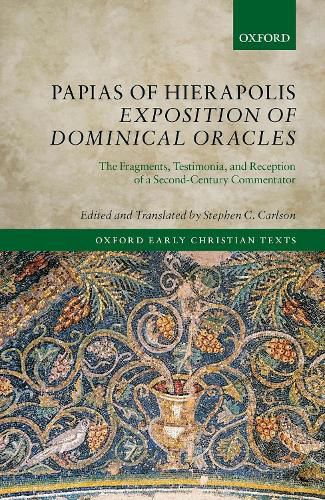Readings Newsletter
Become a Readings Member to make your shopping experience even easier.
Sign in or sign up for free!
You’re not far away from qualifying for FREE standard shipping within Australia
You’ve qualified for FREE standard shipping within Australia
The cart is loading…






This work is the most complete edition of the remains of the lost five-volume work, Exposition of Dominical Oracles, by Papias of Hierapolis, a second-century Christian commentator. In all, some ninety-eight separate mentions of Papias and his work are documented, from the second century to the age of printing in the fifteenth century, both in their original language and in English translation. This body of evidence is scattered over fourteen centuries across fifty-seven different authors writing in five different languages (Greek, Latin, Syriac, Arabic, and Armenian).This edition adopts the distinction between his fragments proper, for what we know of his work, and the testimonia, for what we know of his reception. In addition to these, Stephen C. Carlson provides a list of potential citations of Papias, potential uses of Papias, and fragments falsely attributed to Papias. The volume features an extensive introduction treating the most important instances of reception of Papias and his work.
$9.00 standard shipping within Australia
FREE standard shipping within Australia for orders over $100.00
Express & International shipping calculated at checkout
This work is the most complete edition of the remains of the lost five-volume work, Exposition of Dominical Oracles, by Papias of Hierapolis, a second-century Christian commentator. In all, some ninety-eight separate mentions of Papias and his work are documented, from the second century to the age of printing in the fifteenth century, both in their original language and in English translation. This body of evidence is scattered over fourteen centuries across fifty-seven different authors writing in five different languages (Greek, Latin, Syriac, Arabic, and Armenian).This edition adopts the distinction between his fragments proper, for what we know of his work, and the testimonia, for what we know of his reception. In addition to these, Stephen C. Carlson provides a list of potential citations of Papias, potential uses of Papias, and fragments falsely attributed to Papias. The volume features an extensive introduction treating the most important instances of reception of Papias and his work.